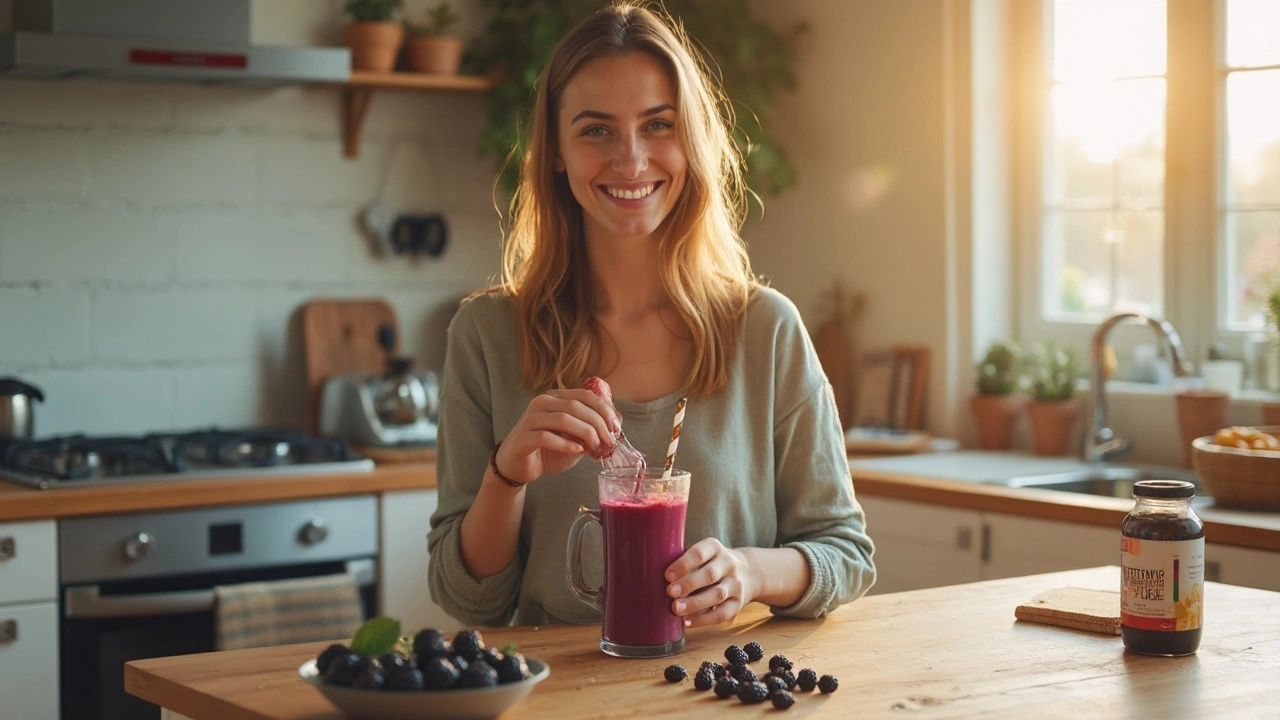Skip the trends—blackberry supplements deliver more than people realize. Packed with antioxidants, they support immune health, boost skin vibrancy, and are easy to add to your routine. This article breaks down why choosing blackberry supplements could be a game-changer for your health. Expect practical tips, need-to-know facts, and answers to what makes them so unique. Feel confident in your wellness choices with clear, honest information.
Antioxidants: What They Do and How to Use Them Safely
Think antioxidants are always harmless? Not quite. They protect cells from damage but high-dose supplements have caused harm in some groups and can interfere with certain medicines. This page explains how antioxidants work, where to get them, and simple rules to use them safely.
How antioxidants work — plain and quick
Free radicals are unstable molecules your body makes from food, exercise, pollution, or normal metabolism. Antioxidants neutralize those free radicals and slow cell damage called oxidative stress. You need a balance: too little antioxidant support can speed aging and disease; too much—especially from pills—can blunt benefits like exercise adaptation or raise risks in people with specific conditions.
Top food sources that actually help
Food gives you antioxidants in a balanced mix. Focus on whole foods rather than pills. Try these often:
- Berries (blueberries, raspberries): high in vitamin C and polyphenols.
- Leafy greens and broccoli: provide lutein, vitamin C, and other phytonutrients.
- Nuts and seeds: vitamin E and healthy fats that help absorb fat-soluble antioxidants.
- Green tea and dark chocolate (70%+ cocoa): rich in flavonoids. Use dark chocolate in small amounts.
- Beans, whole grains, and colorful vegetables: steady sources of polyphenols and carotenoids.
Want a simple plate: half vegetables, one quarter lean protein, one quarter whole grains, and a small handful of nuts or berries. That gives a wide antioxidant mix your body can use.
Supplements: when they help and when to skip
Supplements can fill gaps — for example, vitamin C if you’re deficient or vitamin E when advised by a doctor. But avoid mega-doses without medical advice. Clinical trials showed beta-carotene supplements increased lung cancer risk in smokers. High-dose antioxidants may also reduce the effectiveness of some cancer treatments. If you take blood thinners (like warfarin), check before starting vitamin E—it can increase bleeding risk.
Practical rules: choose food first, use single vitamins only when recommended, and don’t stack multiple high-dose antioxidant pills. Read labels, know typical daily amounts, and stop supplements before surgery if your clinician tells you to.
Final practical tip: combine antioxidant-rich foods with a little healthy fat (olive oil, avocado, nuts) to absorb fat-soluble nutrients like vitamin E and carotenoids. If you train a lot, talk to a sports doctor about timing supplements so they don’t blunt training gains. When in doubt, ask your pharmacist or doctor—especially if you take prescription meds.
Want more on specific antioxidants, dosages, or how they interact with drugs you take? Check related articles on supplements, drug interactions, and safety guides on this site.

